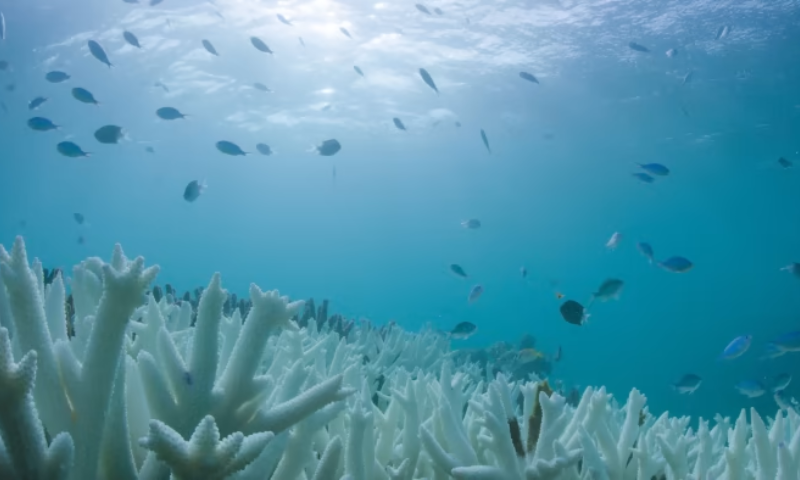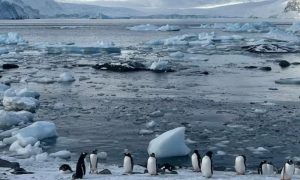SYDNEY: Australia’s iconic Great Barrier Reef is undergoing its most extensive bleaching event on record, with 73 percent of surveyed reefs exhibiting damage, highlighting significant threats to its vibrant marine biodiversity.
Aerial surveys conducted by scientists reveal that approximately 730 out of over 1,000 surveyed reefs across the 2,300-kilometer Great Barrier Reef have experienced bleaching, marking the first occurrence of extreme bleaching across the entire reef.
Government reef authorities report that this summer’s bleaching event has surpassed previous years in cumulative impacts, with up to 46 percent of reefs exposed to record heat stress, compared to 2016 when only 20 percent were affected.
This marks the fifth mass bleaching event in the past eight years, a concerning trend driven by rising water temperatures causing corals to expel algae and turn white, a process that can lead to coral mortality if temperatures remain high.
Richard Leck, WWF Australia’s head of oceans, emphasizes the unprecedented scale of this year’s bleaching, particularly affecting areas previously less impacted, with implications for coral mortality that will be assessed in the coming months.
Chief scientist Roger Beeden underscores climate change as the primary threat to reefs globally, highlighting the exceptional challenges faced by the Great Barrier Reef this summer.
Urgent action is emphasized by experts to mitigate coral bleaching impacts, advocating for global emission reductions and local restoration projects to safeguard these invaluable ecosystems.
The Great Barrier Reef Foundation’s managing director, Anna Marsden, characterizes this as the reef’s worst summer on record, stressing the imperative of immediate global emissions reduction and effective conservation measures to prevent irreversible ecosystem loss.
Ongoing investments by Australia in water quality improvement, climate change mitigation, and species protection are noted, although the country’s significant role as a gas and coal exporter poses challenges to its carbon neutrality goals.
UNESCO will evaluate the efficacy of these efforts later this year in determining whether the Great Barrier Reef retains its World Heritage Status amid escalating threats from climate change.






















